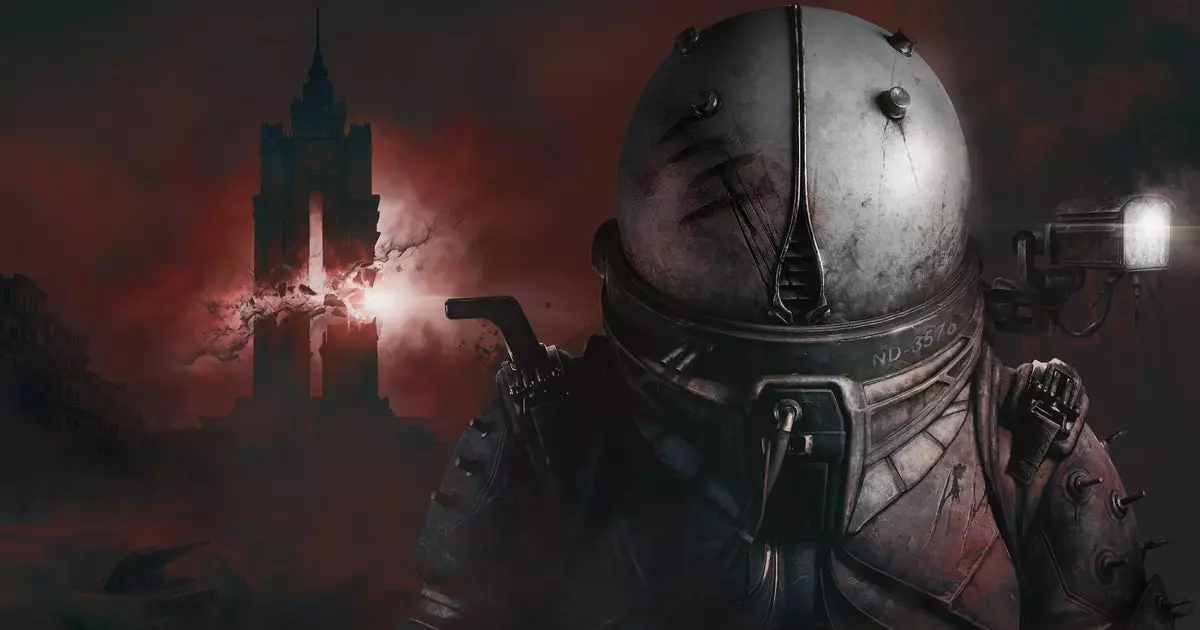In an era where video games continuously push the boundaries of imagination, *Cronos: The New Dawn* emerges as a standout offering from Bloober Team, the visionary creators behind the acclaimed *Silent Hill 2* remake. The upcoming sci-fi horror title presents a unique blend of futuristic dystopia and nostalgic time travel, casting players into an unsettling narrative that straddles two distinct eras: a ravaged future and 1980s Poland. The prospect of navigating between these two timelines for survival and salvation is not only intriguing; it is rife with emotional weight and thematic richness.
The first thing that hits you as you watch the various trailers released for the game is its haunting visual style. Picture a cracked, desolate Earth transformed into an asteroid field, a shadow left behind by a cataclysmic event known as “The Change.” This unsettling ambiance is brought to life through expertly designed environments that mirror Bloober Team’s earlier work with *The Medium*—drawing players into a world alive with dread and obscurity.
The Role of the Player
Assuming the role of a “Traveller” within this broken landscape, your mission is decidedly macabre: uncover portals leading to 1980s Poland, where the grip of The Change is still lingering. Here, the task is not just to traverse time, but also to “extract the Essences” of individuals destined for an untimely demise, essentially saving their souls in the process. This mechanics of “soul-jacking” speaks volumes about the game’s underlying themes concerning mortality and existence—concepts that resonate deeply in a post-pandemic world, where loss has become a collective reality we must navigate.
Moreover, the decision to have players engage in dual timelines adds layers of complexity to the gameplay, forcing us to consider how our actions in the past—not merely our understanding but our emotional choices—impact the future. The narrative gambit of intertwining horror elements with time travel feels fresh and vital, offering a narrative depth that challenges the typical shooter gameplay often seen in the genre.
Combat and Gameplay Mechanics
An evolution in Bloober’s design philosophy is evident in *Cronos: The New Dawn*. The game’s arsenal is robust, featuring weaponry that ranges from a hand cannon to shotguns and automatic rifles, lending itself to a far more confrontational approach than what fans may recall from *Silent Hill 2*. The introduction of a weapon capable of causing an implosive effect suggests a deliberate emphasis on action and offensive strategy, but does it risk overshadowing the psychological tension that Bloober is so well known for?
Equally noteworthy is the inclusion of terrain puzzles that utilize time-rewinding mechanics. This element could redefine the player’s interaction with the game world, inviting them to come up with creative solutions that transcend typical shooting mechanics. While it must be balanced carefully with the horror aspects, this could provide a fresh take on problem-solving, merging it with the high stakes of survival horror.
Cultural Context and Symbolism
What truly intrigues me about *Cronos: The New Dawn* is how it continues Bloober Team’s examination of its cultural roots through various lenses of horror. Their previous works, including *Observer*, tapped into the essence of Polish society, and *Cronos* appears poised to do the same while also delving into a speculative future. The game acts as a mirror reflecting the anxieties of a nation confronted with its past, filtered through the lens of science fiction and the horror genre.
Could the recurring imagery of familiar settings, such as the infamous apartment block from *Observer*, serve as a narrative anchor for players who share an understanding of their cultural history? By weaving these elements together, Bloober raises philosophical questions about identity, memory, and the future we collectively forge from our past.
The release of *Cronos: The New Dawn* is eagerly anticipated, promising not only a fresh gaming experience but a significant commentary on our relationships with time, identity, and horror. With its compelling narrative and emotional undertones, it stands to potentially redefine our expectations within the video game landscape. As we gear up for its launch, the hope is that it strikes a chord that resonates far beyond its pixels and polygons.

